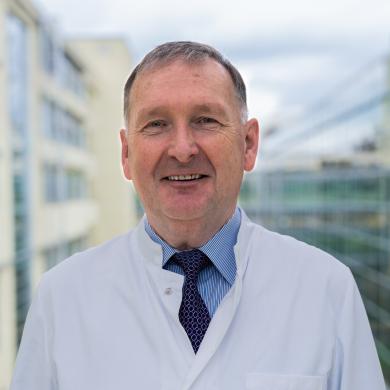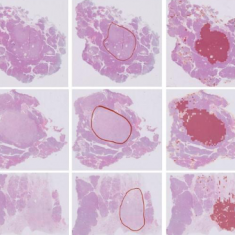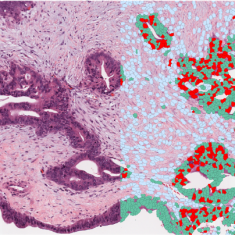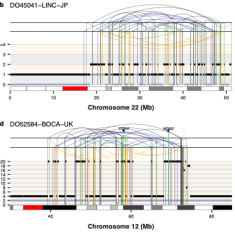- Pancreatic Cancer Research & Treatment
Botton-Champalimaud Pancreatic Cancer Centre
The Future
The Botton-Champalimaud Pancreatic Cancer Centre - resulting from a partnership between the Champalimaud Foundation and the Mauricio and Charlotte Botton couple, who contributed with 50 million euros to its construction – is the first in the world simultaneously dedicated to the research and treatment of pancreatic cancer, one of the deadliest types of cancer.
Combining state of the art services and equipment, aimed at guaranteeing the well-being and comfort of patients, supported by the most advanced techniques, and resulting from an exclusive aesthetic approach, this centre comprises areas of research laboratories, a day hospital, a surgical centre, as well as inpatient and intensive care facilities.
Over the past 20 years, the number of people with pancreatic cancer has increased exponentially throughout most of the world, especially in the most industrialised countries. Pancreatic cancer is already the fourth leading cause of cancer death in Europe and in the next 10-20 years it is estimated that the number of new cases could increase by over 70%, becoming the second leading cause of cancer death in Europe and the USA.
The new Botton-Champalimaud Pancreatic Cancer Centre is a clear response to the need for targeted action towards better knowledge and control of a disease that, in 80% of cases, is diagnosed at an advanced stage and, therefore, is one of the most lethal.
This Centre continues the innovative and distinguishing model initiated at the Champalimaud Foundation in 2010 - bringing science, clinic and patients closer together - adopting a translational methodology, which establishes a direct and interdependent relationship between research and clinical activity.
The Botton-Champalimaud Pancreatic Cancer Centre intends not only to deepen knowledge of the biology and evolution of pancreatic cancer, but above all to develop more innovative forms of treatment and clinical trials, capable of offering patients a better response in controlling the disease.
Botton-Champalimaud Pancreatic Cancer Centre
Head
The Director of the Botton-Champalimaud Pancreatic Cancer Centre
Professor Dr. Markus Büchler is an internationally respected expert in the field of surgery, especially pancreatic surgery, and is one of the most experienced pancreatic surgeons in Europe. So far, he has performed around 3,000 pancreatic surgeries by himself. He is also one of the most experienced oncological surgeons.
On April 1 2023, Prof. Dr. Büchler started his work as the Director of the Botton-Champalimaud Pancreatic Cancer Centre in Lisbon, Portugal.
Professor Dr. Markus Büchler website. Professor Büchler Photo by Frame Base Media Group.

BCPCC
Direction Team

A team of internationally renowned experts
The Botton-Champalimaud Pancreatic Cancer Centre's mission is dedicated to pioneering novel and efficacious treatments for pancreatic cancer. This endeavour is achieved through the collaboration of a diverse team comprising surgeons, clinicians, clinical trials specialists, cancer scientists, genomics experts, and computational biologists. Under the leadership of Markus Büchler, John P. Neoptolemos, Peter Bailey, and Craig Nourse, this multidisciplinary team synergistically strives to achieve the best outcomes for patients battling pancreatic cancer, thereby establishing global benchmarks in cancer care.
BCPCC
Direction Team

Markus Büchler, MD, PHD
Director

Craig Nourse, PhD
Manager of Advanced Platforms

Peter Bailey, PhD
Director of Translational Research
Botton-Champalimaud Pancreatic Cancer Centre
Facilities
The Botton-Champalimaud Pancreatic Cancer Centre in numbers
- Research laboratories: 19 research benches and support rooms measuring about 820m2;
- GMP laboratories (clean rooms) of approximately 515m2;
- Clinical Centre: 29 inpatient rooms and 15 in the ICU/Recovery, for a total of 44 beds;
- Day hospital: with 24 treatment suites
- Surgical centre: 3 rooms, one of them hybrid, measuring a total of 1,000 m2;
- Total construction area: 35,000 m2







